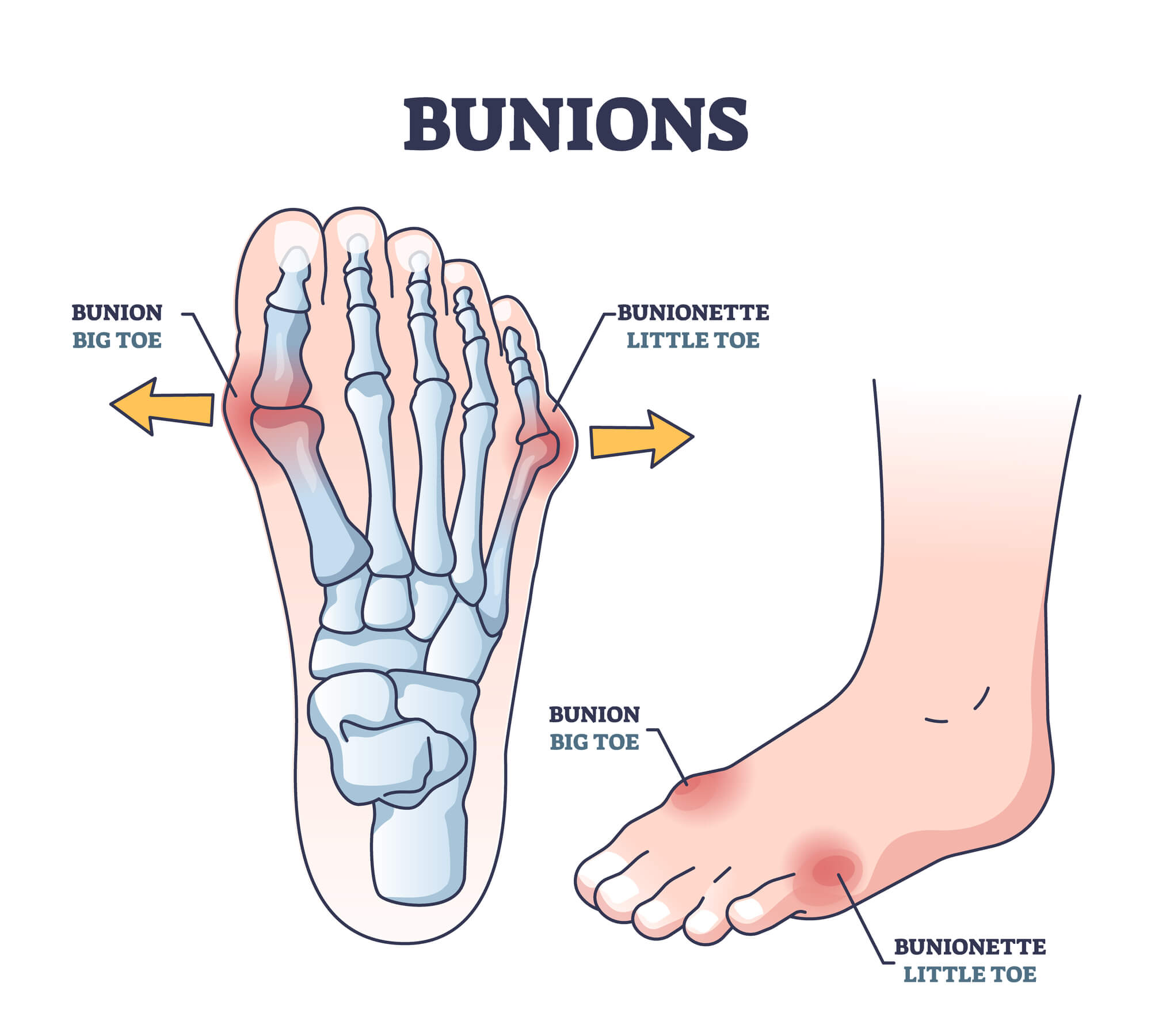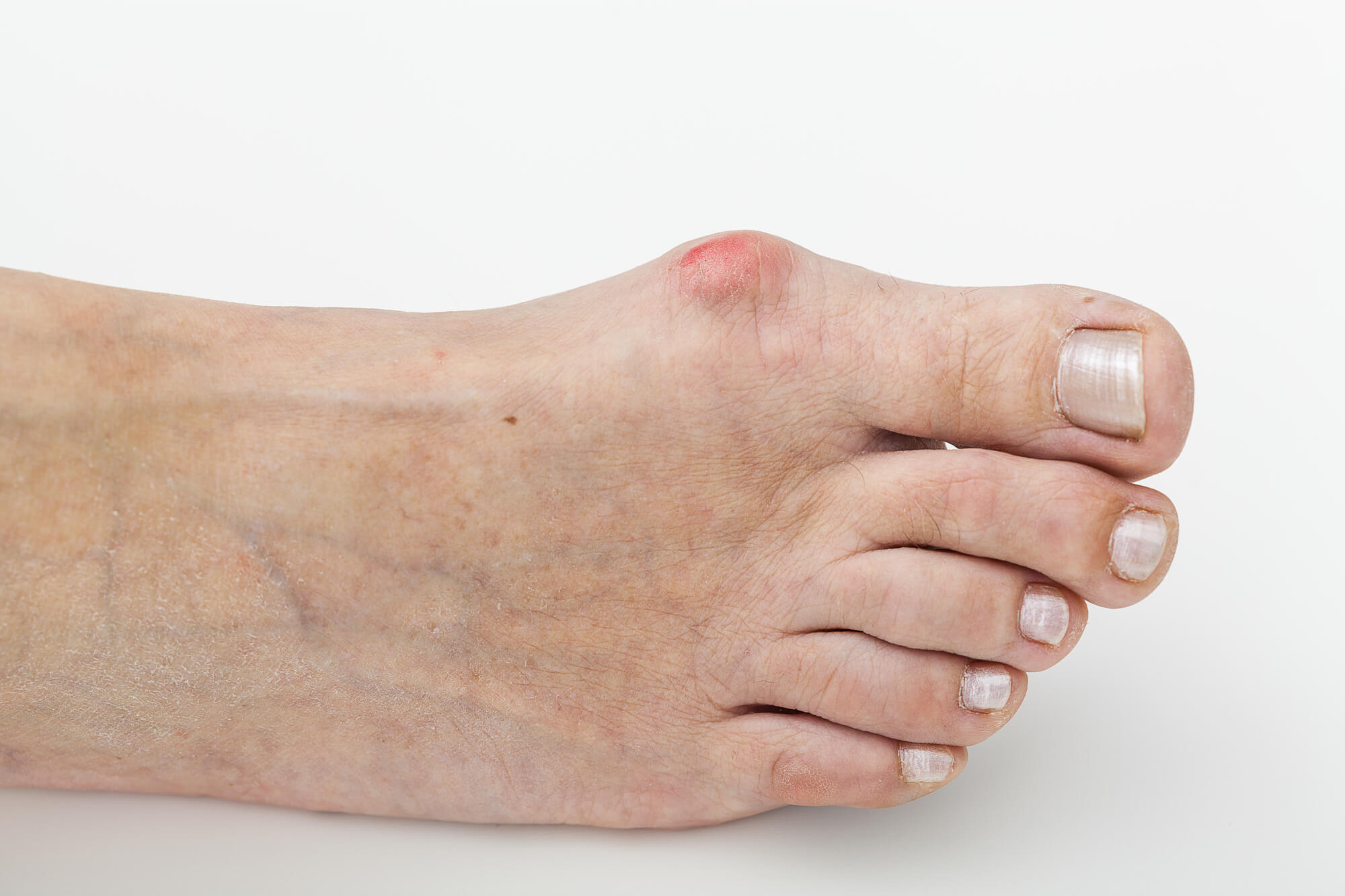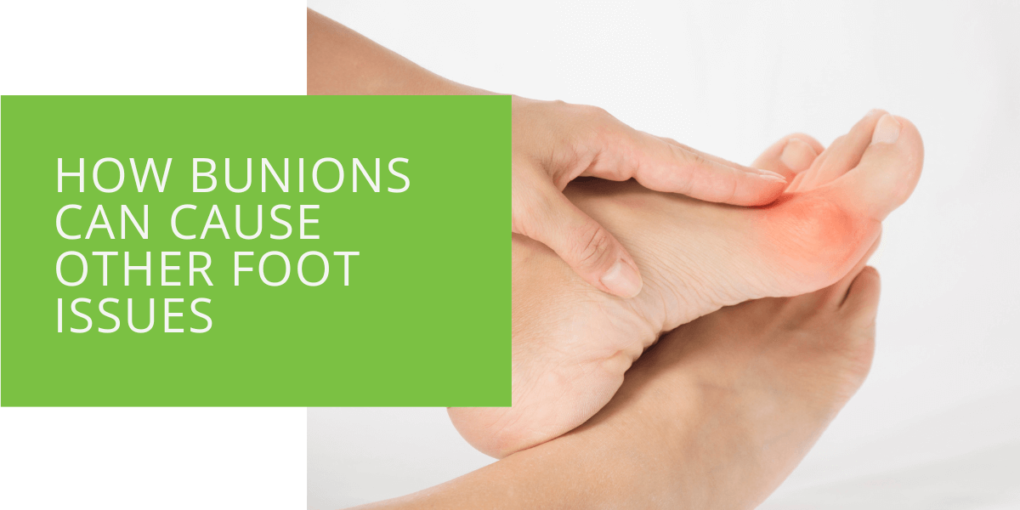How Bunions Can Cause Other Foot Issues
Bunions are a common foot problem that affects many people, especially as they age. The bony bump that develops at the base of the big toe can cause a variety of issues that affect the foot and ankle. In this article, we will explore the anatomy of the foot, the potential complications of bunions, and how podiatrists can help prevent and treat this condition.
The Anatomy of the Foot and How Bunions Affect It
The foot is a complex structure that consists of bones, joints, tendons, and ligaments. The big toe plays a critical role in the overall function of the foot, as it helps to distribute weight and balance the body. When the joint at the base of the big toe becomes misaligned, a bunion can develop.
The bony bump that forms at the base of the big toe can cause a variety of issues. The misalignment can cause the big toe to lean toward the second toe, which can result in overlapping toes or a hammertoe deformity. The bunion can also affect the ball of your foot, leading to a condition known as metatarsalgia. This can cause pain, swelling, and a burning sensation in the ball of the foot.

Complications of Bunions
Bunions can cause several complications that can affect the foot and ankle. Here are a few of the most common issues:
- Deformities in the Toes: Bunions can cause the toes to become misaligned and overlap, resulting in a hammertoe or claw toe deformity. These conditions can be painful and can make it difficult to find shoes that fit properly.
- Bursitis and Tendonitis: The inflammation caused by the bunion can lead to bursitis or tendonitis. These conditions can cause pain, swelling, and limited mobility.
- Arthritis: Bunions can also lead to the development of arthritis in the joint at the base of the big toe. This can cause pain, swelling, and stiffness in the toe and foot.

Prevention and Treatment of Bunions and Related Foot Issues
There are several steps you can take to prevent the development of bunions and related foot issues. These include:
- Wearing Proper Footwear: Avoid shoes with a narrow toe box or high heels, which can put pressure on the toes and exacerbate bunion formation.
- Orthotics and Inserts: Podiatrists can create custom orthotics or recommend over-the-counter inserts to help support the foot and relieve pressure.
- Surgery: If conservative treatments are not effective, podiatrists can perform surgery to realign the joint and remove the bony bump.
It's essential to seek treatment for bunions and related foot problems early to avoid the development of more severe complications. Podiatrists can recommend the best course of treatment based on your specific needs.
Schedule an Appointment with a Podiatrist
If you're experiencing pain or discomfort in your foot, it's important to schedule an appointment with a podiatrist. They can diagnose the problem and recommend the best treatment to help you feel better. If left untreated, foot problems can become more severe and impact your quality of life. Common issues like calluses, corns, and toenail issues should also be treated by a podiatrist to avoid further complications.
Conclusion
Bunions can cause a ripple effect of foot issues that can affect your overall quality of life. By understanding the anatomy of the foot and the potential complications of bunions, you can take steps to prevent the development of more severe conditions. Podiatrists can help with diagnosis and treatment, providing customized solutions to address your specific needs. Remember, it's essential to seek treatment early to avoid more severe complications. So, take care of your feet, and schedule an appointment with a podiatrist if you experience any pain, discomfort, or abnormalities in your feet. They can provide a comprehensive evaluation of your feet and ankles, diagnose any problems, and recommend the best treatment plan.
Bunions are a common foot problem that can lead to other issues in the foot and ankle. While the condition can be painful and make it difficult to perform daily activities, it can be prevented and treated. By taking preventive measures, wearing appropriate footwear, and seeking early treatment from a podiatrist, individuals can prevent the development of more severe complications. The best way to care for your feet is to be proactive about their health, and to seek professional care whenever necessary. Remember, healthy feet are the foundation of an active and pain-free life.

